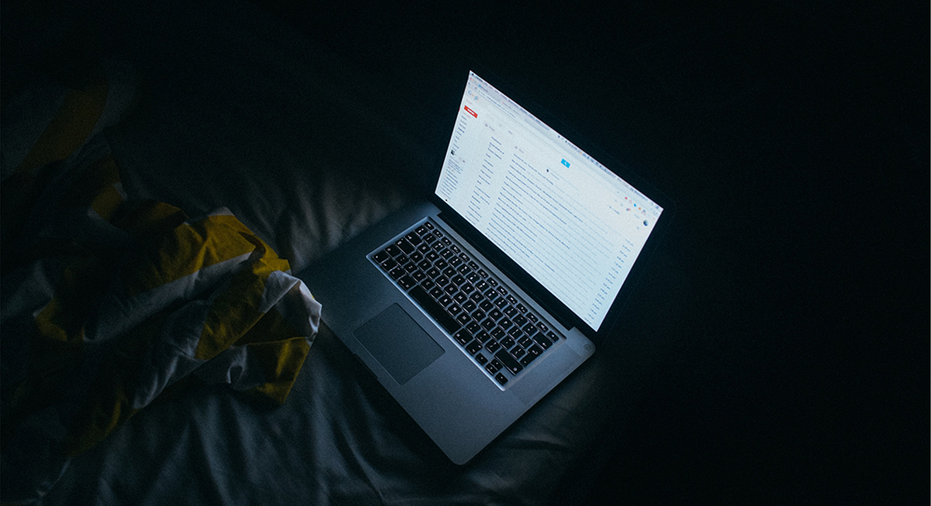5 Ways to Effectively Up Your Email Game and Get Hired

More than 2.5 billion people in the world use email today, and more than 2.5 million emails are sent every single second. In fact, 61 percent of people report email to be "very important" for their job – compared to 54 percent of people who express the same sentiment about the internet.
More likely than not, you will have to use email in your next job search. Whether you're reaching out to the person who will be making the hiring decision or following up after an interview, having stellar email skills will definitely improve your chances of getting hired.
Here are some tips for you:
1. Emailing The Right Person + Personalization = Email Success
You are probably familiar with emails that take the following format:
Hi,
I'd like to reach out to see if you're looking to hire [position] at X Company.
I have [degree] and [experience 1] and [experience 2], and I think I will be the best fit for you.
I look forward to discussing more if you're interested.
Warm Regards,
Mark
While most people assume that emails like this are best because they are short and concise, there are actually two problems with this format. First, the email is often sent to the wrong person or to a generic email address. This is a recipe for failure. Second, it lacks personalization.
Now, think about this modified version:
Hi John,
I'd like to reach out to see if you're looking to hire [position] at X Company. I'm a long-time follower and admirer, and I feel I will really align with your goals and values such as [X] and [X].
I have [degree] and [experience 1] and [experience 2], which makes me the ideal candidate for helping X Company achieve the goals of [X] and [X].
I look forward to discussing more and sending you my C.V. if you're interested.
Warm Regards,
Mark
Not only is this more personal, but also it includes more information on how you will align with the company values and help the organization achieve its goals. It is also being sent to the right person.
To increase your chances of getting hired, make sure you reach out to the right person. Ideally, this would be a key decision maker in charge of the department you want to work at. Avoid sending your email to a generic address if possible. Personalize your emails by including that person's name and by letting the person know that you're familiar with them.
2. Sending the 'Did You See My Email?' Follow-Up Will Yield More Responses
We established earlier that more than 2.5 million emails are sent every second. If you can count on one thing, it is the fact that the inbox of the person you're reaching out to is overwhelmed with both relevant and irrelevant emails. Every single other email in that inbox helps to drown yours out.
Due to how busy our email inboxes are – especially those of decision makers – many people fail to follow up when they don't get a response, or they follow up too late. This is simply a mistake.
Following up can significantly boost your chances of getting a response, but it has to be done right. In a study of 16 billion emails involving 2 million users, the USC Viterbi School of Engineering found that 90 percent of people won't respond to an email after 48 hours. That means if there has been no response to your email after 48 hours, there will most likely never be a response. So what's the best thing to do? Follow up.
3. Sending the 'Thank You' Follow-Up Will Increase Your Chances of Getting Hired
Unfortunately, many candidates have lost out on jobs because they ignored this seemingly unimportant type of follow-up email.
According to research from CareerBuilder, a good 22 percent of hiring managers are unlikely to hire a candidate who didn't send a thank-you email after an interview. This is because they feel that the candidate either isn't really serious about the opportunity or doesn't have good follow-through skills.
Be sure to always follow up after an interview to thank your interviewer. Not only is this a great way to leave a good impression, but also it shows that you are conscientious – a trait many recruiters look for in candidates.
4. The KISS Principle
In an experiment involving 1,000 executives from the Fortune 500 and Inc 500 lists, Contently cofounder Shane Snow found that two key factors influenced email open and response rates: sender name and subject line. Now, you can't do much about your sender name, but you can do a lot about your subject line.
The first thing to understand about busy people is that they are, well, busy. Keeping things simple will lead to better responses for you. Snow's experiment found that short, curiosity-driven subject lines will result in more opens than longer subject lines will.
Similarly, you should keep the email itself short and simple. If there are key facts you want to highlight, use bullet points to highlight them.
5. Use Technology and Automation to Make Your Job Easy
Most importantly, you want to know what is working and what isn't. The good thing about email is that a lot can be automated these days. Many email apps, like Boomerang, Sidekick, and Yesware, will let you track opens, schedule your emails in advance, and automate follow-ups if you don't get a response. Make use of these apps to instantly give yourself email superpowers.
John Stevens is the founder and CEO of Hosting Facts.



















